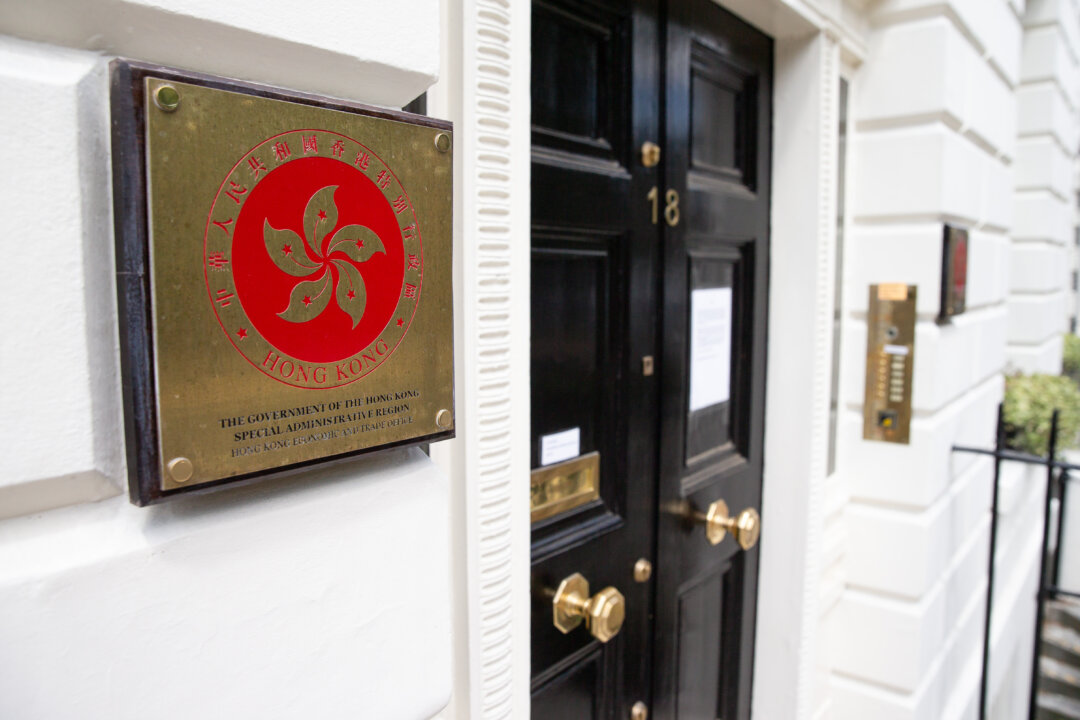The report alleges that the Hong Kong government is pushing a pro-CCP narrative using a network of government agencies and associations.
A network of Hong Kong government organizations in the United States is pushing Beijing’s agenda at state and local levels, according to a new report.
The report, published on Oct. 29 by Washington-based pro-democracy group Hong Kong Democracy Council (HKDC), alleged that the Hong Kong government is strategically targeting state and local media, think tanks, business communities, and academia in the United States, promoting Beijing’s foreign policy initiatives such as the Belt and Road Initiative and “whitewashing” the Hong Kong government’s human rights abuses.
According to the report, official agencies of the Hong Kong Special Administrative Region (SAR)—Hong Kong’s official name since Beijing regained control of the former British colony in 1997—and Hong Kong government-backed local associations have hired U.S. consultants to parrot pro-Beijing propaganda, connected Hong Kong and local U.S. officials, and purported to represent the Hong Kong diaspora in the United States, crowding out pro-democracy voices.
The network of influence is spearheaded by the Hong Kong Economic and Trade Offices (ETOs) in New York, Washington, and San Francisco, which “played a central role in the formation of the SAR network, financially supporting astroturf groups and hiring American political consultants to spread propaganda at the local level,” the report said.
The authors called on Congress to revoke the ETOs’ privileges in the United States by passing the Hong Kong Economic and Trade Office Certification Act.
In response, a spokesman for the Hong Kong government said the three ETOs in the United States have been performing their duties of establishing and maintaining economic and trade relations “in compliance with the U.S. laws.”
The Hong Kong government “strongly opposes any unfounded allegations against the ETOs and their work,” the spokesman added.
Hong Kong authorities have a total of 14 overseas ETOs in Europe, Asia, North America, and Dubai, with different setups and privileges.
On Sept. 10, the U.S. House of Representatives passed the bipartisan Hong Kong Economic and Trade Office Certification Act by an overwhelming majority.
If the bill becomes law, the three ETOs in the United States will be subject to annual assessments and be shut down if the U.S. government determines that they “no longer merit extension and application of [their] privileges, exemptions, and immunities.”
In May, the UK government was also urged to review the status of the ETO in London after one of its employees was accused of spying for Hong Kong and entering a residential address by force.
Another statutory body of the Hong Kong government, the Hong Kong Trade Development Council (TDC), also plays a major role in Hong Kong’s influence network, the HKDC said.
The report cited official records, saying the TDC paid lobbyists to engage the governments of 22 U.S. states since 2021.
It alleged that the council has “mislead U.S. investors and members of the business community about the political environment in Hong Kong” since 2019 and “pioneered new ways to advance pro-C.C.P. [Chinese Communist Party] propaganda at the state and local levels,” such as producing a “glowing” report on China’s business environment in partnership with an influential U.S. think tank.
According to the report, the roles of the ETOs and the TDC are complemented by 12 local Hong Kong associations, of which 10 remain active.
“All ten of the active Hong Kong Associations have self-disclosed financial or political links to the S.A.R. government, and nine of the ten have links to multiple S.A.R. government entities,” the report said, adding that they typically list ETOs and the TDC as key partners, with some being additionally supported by other Hong Kong government entities.
The report said the associations developed relationships with local politicians and government officials, some of whom double as members of these associations.
According to the report, the associations facilitated “propaganda tours” for Hong Kong officials, developed close ties with U.S. academia, and purported to be local representatives of Hong Kong culture, bringing themselves in contact with the pro-democracy diaspora, who are often wary of the Hong Kong government’s overseas activities.
Hong Kong’s Beijing-imposed national security law, passed in 2020, and its homegrown Safeguarding National Security Ordinance, passed earlier this year, claim to have overseas jurisdiction. Hong Kong authorities have issued bounties on a number of exiled pro-democracy activists accused of offenses such as inciting secession and undermining national security by colluding with foreign forces, including HKDC Executive Director Anna Kwok.

